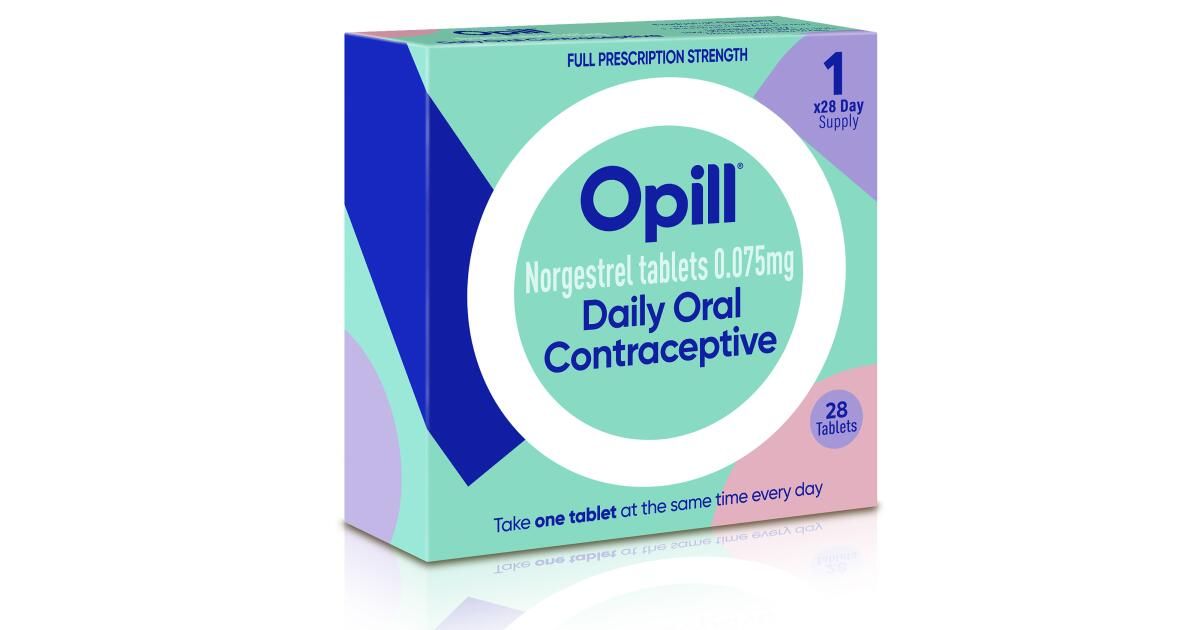Fifty years after the Federal Drug Administration approved a prescription birth control pill, the first over-the-counter birth control pill is available to the public without a prescription in most pharmacies, convenience stores and supermarkets, as well as online.
Opill's availability, starting Monday, comes two years after the U.S. Supreme Court struck down the constitutional right to abortion in Roe v. Wade and highlighted the heated debate over birth control and a woman's right to choose. So far, no state or jurisdiction has proposed restrictions on sales of Opill, although experts say age restrictions on sales are likely.
Walgreens and CVS will soon offer Opill in stores as shipments arrive, but customers can already purchase the pill online at Opill.com and Amazon. Perrigo, the pharmaceutical company that sells Opill, cannot share how many purchases have already been made, but on Amazon, sales of the 24- and 84-unit supplies have already reached more than 1,700 orders in two days.
“You can avoid the need to see a doctor or get a physical exam from a health care provider, and you can simply have it delivered to your home, which expands access,” said Khiara M. Bridges, professor of law at UC. Berkeley who studies reproductive rights.
Bridges said Opill's online sales will help provide access to contraception to those living in remote or rural areas, as well as victims of domestic violence. “Any time there is travel involved, it is an opportunity for a barrier to access to be created.”
He noted that cost could be a prohibitive barrier for low-income people; a 24-count box of Opill costs $20 and a 84-count box costs $50.
“Because these are not prescriptions, the user of the medication has to bear the full cost of the medication,” Bridges said. And that could reduce access for people who rely on insurance to cover their birth control medications. “This is not the final solution.”
Dr. Ashely Jeanlus, an obstetrician and gynecologist at the University of California, San Francisco, said there could be health-related reasons why her patients would choose Opill, which only contains progestin, instead of a prescription contraceptive that contains a combination of progestin and estrogen.
“I would never offer [medication containing estrogen] to someone who has had blood clots or strokes or…who has chronic hypertension that is not controlled,” Jeanlus said of the increased risk of adverse side effects for these populations. He said transgender patients undergoing hormone replacement therapy might also prefer to avoid estrogen medications.
According to clinical trials, the pill was found to be 98% effective when taken within the same three-hour period every day. Like many other forms of contraception, birth control pills have common but mild side effects, the FDA stated online, such as “irregular vaginal bleeding, nausea, breast tenderness, and headaches.” The FDA warns that Opill is not for people who have had or have breast cancer.
Triona Schmelter, CEO of Perrigo, said Opill is safe for HIV-positive people, although its effectiveness could be reduced by HIV/AIDS medications and people should consult their doctors. Progestin pills can now be purchased in the UK without a prescription as of 2021, and the FDA approved norgestrel, a type of progestin, as a prescription drug in 1973. The approval process for this pill to become commercially available in the US In the US it took 50 years.
In some parts of the country, challenges to reproductive resources have increased since the reversal of Roe v. Wade in 2022, and Jeanlus worries what all this means for the quality of patient care he can provide.
“You're limiting people's access to choice and empowerment, and then you're wreaking havoc within the health system,” Jeanlus said.
Last month, in vitro fertilization services in Alabama were left in limbo when the state Supreme Court ruled that frozen embryos were considered children before the state granted immunity to IVF.
Bridges believes the political backlash to abortion and birth control is because “large sections of the population firmly believe that sex is for procreation and should only be had within marriage” and do not want young people to have sex. casual. This comes as Americans overall are having less sex, and a UCLA study showed that members of Generation Z were reluctant to watch sex on screen.
But Bridges said Opill could become as mundane as condoms offered for free in a college campus bathroom. During pop star Olivia Rodrigo's “Guts” tour, abortion rights organizations handed out emergency contraceptives and condoms until her team asked them to stop.
In the future, Bridges wants to make Opill accessible in all public spaces. “The easier it is to get medicine, the better it is for everyone,” he said. “But certainly for people who previously haven't had access to reproductive health care.”












